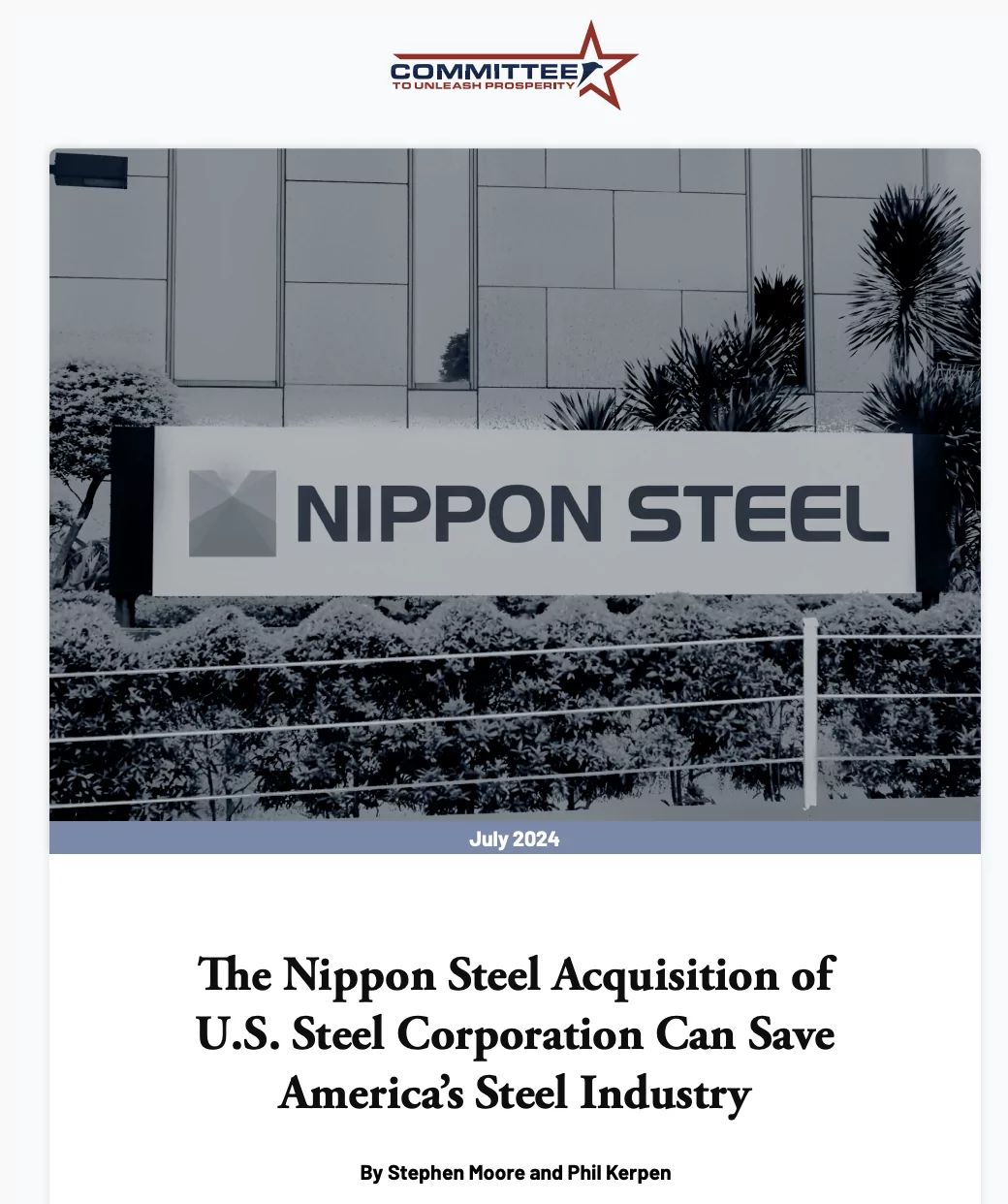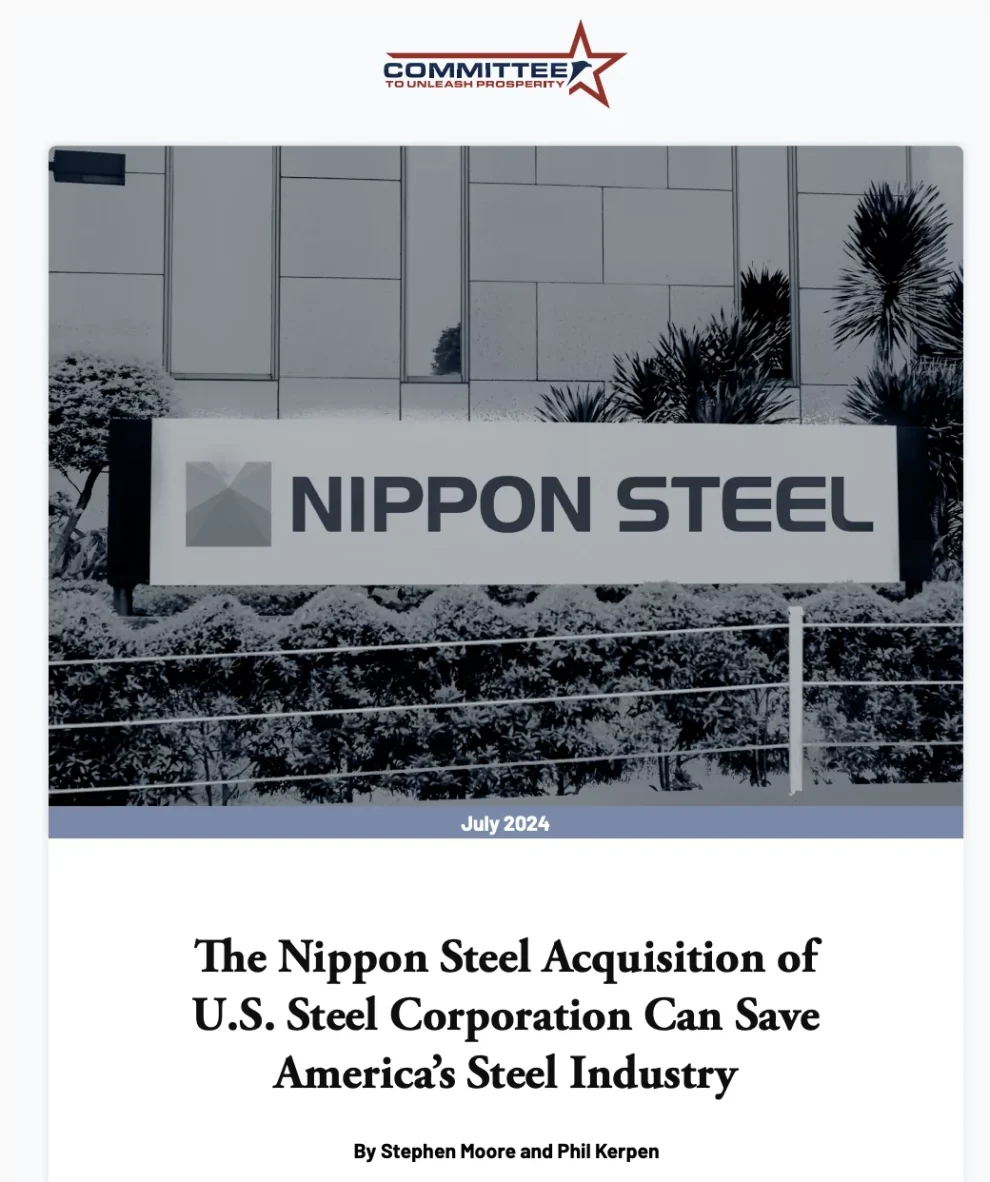Despite earlier misgivings about Japan’s Nippon Steel buying Pittsburgh-based U.S. Steel, conservative economists are rallying behind the deal to stave off possible retaliation and tariffs.
The Heritage Foundation and now the Committee to Unleash Prosperity have argued the deal is great for the United States, will keep U.S. manufacturing jobs, and will expand steel production.
“This acquisition is not just a lifeline for U.S. Steel. It’s a massive vote of confidence in the American economy,” said Stephen Moore, co-founder of the Committee to Unleash Prosperity.
Committee President Phil Kerpen told Secrets, “Blocking this deal would be a costly mistake that would harm shareholders and strengthen China’s position in the global steel market. This acquisition is a clear economic win for America.”
Late last year, Nippon offered $15 billion for U.S. Steel. To prove it was a friendly deal, it offered to move its headquarters from Japan to Pittsburgh. The deal is still awaiting the Biden administration’s OK.

Moore and Kerpen released a report on Wednesday on the many benefits of having U.S. ally Japan take over the steel giant.
“The deal offer from Nippon Steel provides an unprecedented premium to U.S. Steel shareholders, bolstering the company’s financial health and potential for growth. Moreover, the infusion of capital and technological advancements promised by Nippon Steel can rejuvenate U.S. Steel’s operations, enhancing productivity and competitiveness,” they concluded in the 13-page report.
In the report, the duo listed the benefits of the deal over five pages, countering union and political critics.
For example, shareholders stand to lose at least $4 billion if the deal fails. In its offer, Nippon said it would pay 40% above the value of USS. And the firm plans to invest heavily in USS.
The deal appears to be better than another offer from Cleveland-Cliffs. Kerpen and Moore said that deal would cost shareholders $6.8 billion.
The two also said the merger of the steel giants would likely lead to industry advancements. The “infusion of foreign technology may be the key to revitalizing not only U.S. Steel as a company but the U.S. steel industry more broadly,” they wrote.
It also “chips away” at China’s lead in steel, they added. “Although it may only represent a combined 10% of global production between the two allied countries, any financial and technological exchange that rebalances the international scales of steel production is a step in the right direction and should be encouraged by politicians on both sides of the aisle,” the report shared with Secrets said.
SEE THE LATEST POLITICAL NEWS AND BUZZ FROM WASHINGTON SECRETS
And for taxpayers, there is a big benefit to having private money invested in America.
“The unspoken irony of the clamoring horde of politicians decrying Nippon Steel’s proposed investment in U.S. Steel is that they themselves seem to have no qualms with foreign dollars funding their wasteful spending and utterly unproductive activities. Approximately one third of our $24.5 trillion publicly held debt (as of December 2022) is owned by foreign creditors. So, while politicians claim that Nippon Steel’s $14.9 billion investment poses a national defense risk, they have implicitly accepted approximately $8 trillion in foreign investment in their activities. Only a politician with logs in both eyes could miss the hypocrisy,” the report said.
























